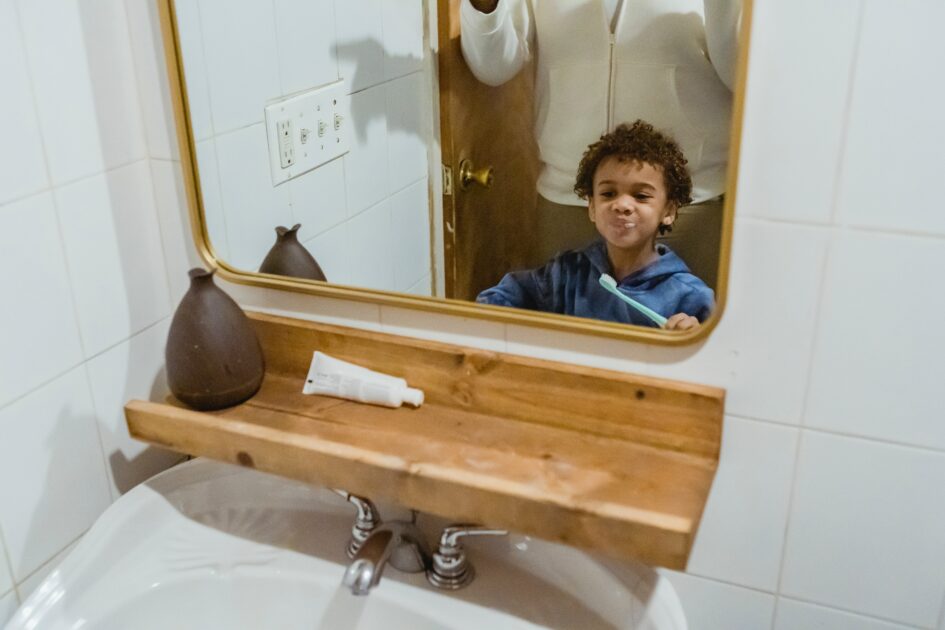Children need to follow good habits. Practising healthy habits helps them live a happy and successful life. Moreover, practising these habits can help shape their future.
While inculcating these habits into your children, one must understand that children follow what they see. Hence, if you want your kids to follow healthy habits, you must set an example for them by following it yourself.
Practising good habits since early childhood is recommended as it helps children to make health decisions when they grow up.
10 Good Habits
1. Basic Hygiene
It is essential to practise and follow basic hygiene. Teach your children about hygiene, and tell them why it is important to maintain it. Moreover, instruct them about how to properly clean their body as this habit can help avoid transmitting infections.
Some adults have had a difficult time learning about personal hygiene as they were not taught about it as a child, or did not follow these habits regularly.
2. Respect And Acceptance
As a parent, you must teach your children to treat everyone with respect. Moreover, it is also crucial for them to understand the importance of acceptance.
Everyone is different, hence we must teach children to respect their differences. When you teach your child to be respectful and accepting, you teach them to treat people with kindness.
Suppose your child meets a person with Down syndrome, they must be respectful towards them as it indicates values you have inculcated in your children
3. Practice Gratitude
Studies show that practising gratitude increases physical and mental well-being. Moreover, it builds self-esteem in children. Furthermore, a positive outlook and am happier, in general.
It is a practice that should be followed by not only children but also adults as it enhances empathy and is also a healthy mental health exercise.
4. Have A Healthy Sleep Schedule
“Early to bed and early to rise keeps a man healthy and wise” is a famous quote by Benjamin Franklin. However, it isn’t just a quote. It has several benefits such as improved brain performance and function.
Having proper 6-8 hours of sleep is highly recommended. According to studies, following a healthy sleeping schedule is also beneficial for the cardiovascular system. Moreover, it also improves cognitive function.
Furthermore, having a healthy sleep cycle also results in better energy levels throughout the day. It also helps to boost the immune system which helps one to stay healthy.
Read about: Adjusting Your Child’s Sleep Schedule in 8 Easy Steps
5. Reading
Reading expands one’s mind. The more one reads, the more they learn. However, not everyone enjoys reading, hence, it is essential to develop this habit in early childhood. The habit of reading has several benefits such as enhancing vocabulary, and creativity.
Reading from an early age will help to gain more knowledge and moreover, it improves concentration and focus.
Additionally, children who read, often do extremely well in academics, and read well. Moreover, it helps to develop communication skills.
6. Kindness
Being kind has a very positive effect on an individual and even the people around them, it doesn’t cost anything and causes one to be more socially involved. Being kind improves the feeling of empathy and is also known to improve relationships.
7. Limited Screen Time
Children today often get addicted to phones. However, it is not recommended to allow young children a lot of screen time. Hence, it is essential to limit their screen time to 1-2 hours a day.
Avoid giving your children mobile devices to watch cartoons, rather let them watch things they want to on television. It is better since television has a much bigger screen size and hence does not strain children’s eyes.
Additionally, it is easier to monitor what your child is watching, this is important as having unlimited access to the internet may expose children to adult or graphic content.
8. Not Wasting Resources
Teach your children good habits like:
- Saving water: Teach them to close the tap while not in use.
- Saving electricity: Teach them to switch off electrical appliances when not in use.
- Recycling: Teach your children to reuse and recycle things.
- Minimising use of plastic: While it is not possible to completely eliminate plastic, you can teach them to take alternatives like carrying a water bottle with them at all times and carrying their own utensils.
It is essential to make your children aware of sustainability and teach them to be responsible and mindful about the environment as it is important to utilise resources wisely.
9. Taking Responsibility
Ask your kids to do at least one chore daily, it could be as simple as making their bed, washing their own dishes, etc.
When children become adults they often find it difficult to navigate through adulting. Hence, giving them responsibilities from a younger age can help them to be more responsible and make more informed decisions.
It gives them a sense of independence and reduces entitlement. Moreover, it also helps to build a good routine for them to follow and can enhance their time management skills.
10. Developing Healthy Eating Habits
Young children can often be fussy or picky about certain food items. Hence, it is important that parents encourage children to eat all kinds of food. Developing healthy eating habits helps to maintain a healthy lifestyle and helps avoid health issues.
Moreover, it teaches children to make healthier choices. Having snacks once a day is fine, nevertheless one must limit how much fast or fatty foods one consumes.
It is important to teach them that balanced meals are important as they have many health benefits and better energy levels.
Having healthy eating habits also improves:
- Heart health
- Bone density
- Immune system
- Skin health, etc.
And also help to promote overall wellness.
Suggested reading- Life In An Extended Family: How is it different?
